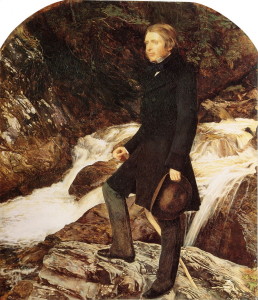 In a major piece of research facilitation, IES Associate Fellow Dr Karen Attar is editing the third edition of the Directory of Rare Book and Special Collections in the United Kingdom and Republic of Ireland for CILIP’s Rare Books and Special Collections Group. In this second post (the first can be found here) Dr Attar discusses the elusiveness of finding the right organisations to bring the Directory up to date.
In a major piece of research facilitation, IES Associate Fellow Dr Karen Attar is editing the third edition of the Directory of Rare Book and Special Collections in the United Kingdom and Republic of Ireland for CILIP’s Rare Books and Special Collections Group. In this second post (the first can be found here) Dr Attar discusses the elusiveness of finding the right organisations to bring the Directory up to date.
Karen Attar (IES Associate Fellow/Senate House Library)
Bringing together information about over 1,200 repositories containing printed special collections – all sorts of libraries, archives, and museums – is extremely useful for letting researchers know what is where, but it is a challenging task. In effect, it is a form of project management with some 1,200 participants (the contributing repositories), all of whom are volunteers from the project manager’s point of view; some of whom are volunteers concerning the collections they curate; and many of whom have conflicting priorities and agendas.
One of the reasons for producing a third edition of the Directory of Rare Book and Special Collections in the United Kingdom and Republic of Ireland was that the second edition, from 1997, was out of date. The first challenge was to find elusive organisations. Falmouth did not appear at all in the 1997 Directory, because Falmouth University as such did not exist. Dartington College of Arts in Totnes, Devon, did. In 2008, University College Falmouth merged with Dartington. The Camborne School of Mines, which has a special collections of rare books on mining, mineralogy and geology, merged with the University of Exeter in 1993, but somehow its special collection ended up at Falmouth. St Philip’s Priory in Begbroke, boasting 120 volumes of 17th– and 18th-century material and five hundred volumes of rare modern Servite material in 1997, was closed in 1999, and the rare books went to the Servite Priory in Benburb in County Tyrone. That sort of thing has happened rather a lot, and detective work is necessary to establish whom to contact.
Once organisations which have merged or moved have been traced, the challenge arises of making such organisations realise that they are being appealed to. The only sensible way to approach libraries with entries in the old edition was to send mass emails, including a chunk of the old Directory and asking them to look at their entry and update it. The chunks were arranged by county, because that was the preferred arrangement in 1997. In 1996 the Ruskin Galleries at Bembridge, Isle of Wight, closed, and books owned or written by John Ruskin moved to Lancaster University. If a member of staff is in a hurry, and does not have a memory extending as far back as 1996, there is nothing telling him/her instinctively where to look. The difficulty is compounded if the name of the repository as well as the place has changed (a particular fate in companies). It must be tempting to treat a request for an update as spam.
That is if one gets as far as reaching an organisation. Contacting large academic libraries or special libraries is generally  straightforward. Numerous organisations, though, have generic enquiries email addresses, and emails simply do not get through to the right person (schools are a salient example). Certain organisations only expect queries about the key matters for which they exist: see, for example, the HMRC website. Public libraries can also be hard to reach, with email addresses available only at county council level. One achieves a higher success rate by including specific Directory entries in the body of an email, and addressing an email to the specific library, so that the email recipient knows where to reroute it – a time-consuming matter. Whatever rules might exist about turning emails around within set periods, they are not universally followed.
straightforward. Numerous organisations, though, have generic enquiries email addresses, and emails simply do not get through to the right person (schools are a salient example). Certain organisations only expect queries about the key matters for which they exist: see, for example, the HMRC website. Public libraries can also be hard to reach, with email addresses available only at county council level. One achieves a higher success rate by including specific Directory entries in the body of an email, and addressing an email to the specific library, so that the email recipient knows where to reroute it – a time-consuming matter. Whatever rules might exist about turning emails around within set periods, they are not universally followed.
What counters the challenges is awareness (sometimes) of the value of task and awareness (always) of a huge amount of good will: from volunteers who chase libraries in certain areas; from librarians and others (e.g. vicars for parish libraries) who answer questions, and who express their conviction of the importance of the work. My school motto was “Finis coronat opus”. May it be so!
